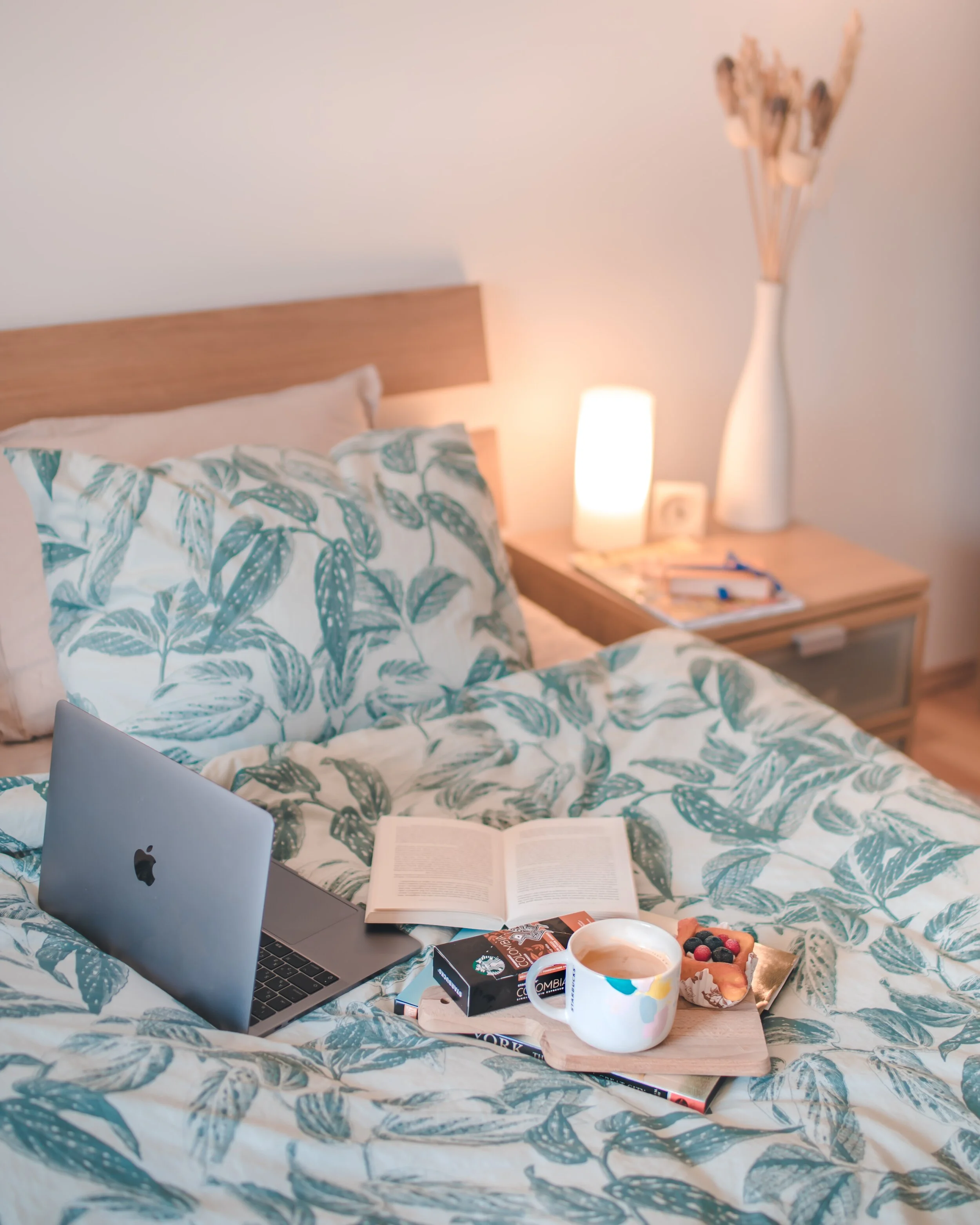How do we adjust to all of this rapid change? In one week, we’re dining out and seeing friends. The next, we’re losing our jobs, in our houses all day every day, and stocking up on food. It’s a lot. We have to mindfully navigate these changes. Now’s the time to take stock of what’s important to you day to day (talking to friends? Eating healthfully?). You’ll also want to keep (or adapt) routines that feel healthy and comforting (eating a healthy breakfast? Doing yoga each day for one hour?) and make your house the safe space you need in order to comfort you through anxious, dark, and isolating moments. Keep what feels good to you, and build from there, integrating your workspace tools and job duties into your home-life. Some ideas:
Create one specific space where you work. This creates a healthy separation between work and life. Make it as similar as you can to your office space.
Prioritize daily tasks. Besides work, what else matters? What do you do ‘normally?’ Try to adapt those same behaviors. For example, I swim once per day, usually in the morning. I can’t in quarantine, so instead, I plan to do a workout at that same hour. For those of you who take a break at the office around 12, try to replicate that at home. Creating mirrored actions helps us make sense of rapid change, and you can always switch them out if you find something else you like to do better!
If you feel like you’re missing out on a post-work routine (a local pub, hanging with a friend, walking around the park before heading home), try to create a similar-ish routine you can do when you close the computer — and do close the computer. Working from home is not an invite to work all night, even if it seems tempting.
Building a morning ritual to soothe the nervous system.
Because you don’t have a built-in routine — up at 7, on the train by 8, at the desk by 9, for example — you have to create your own routine. This is where discipline comes in. If you don’t want to work all damn day and night, or you want to leave time for projects and pleasures, you’ll need to work from your set hours. Sure, you might snag an extra 45 minutes of sleep, but being at your computer in the morning (if that’s what’s expected of you or not) can help create a sense of responsibility.
Start your morning with a ritual: stretching, pulling a tarot card, meditating, making a cup of coffee, listening to some music as you shower, standing at the window or porch and absorbing the light, and slowly logging on. Go inward. Wake up your senses. Be deliberate and soothing. It’s especially important now to be a little slower, be a little more intentional. Your parasympathetic nervous system may already be shot, so it’s important to show your body that the morning can be soft and calm. You want to set your day’s tone with self-kindness.
Rest when you need to. Seriously.
One of the benefits of working from home is the ability to simply lay down for 15 — vertically, at a window, wherever. You don’t have to hide-nap in a stall at the office. Even though we have bills to pay (those of us who are privileged to keep our jobs right now, of course), now is the time to balance our ability to do more with resting.
In a sense, the earth is asking us a serious question. The earth is asking us to slow down, to listen, to be more in-tune, to stop pushing so hard — our bodies, the planet, our factories, our workers, our minds. To just be. To just be. Because we are not infallible. We are not eternal. We are natural things that have become selfish enough to think we are omnipotent. We are not. We, like trees, need water and light and time to grow. We bend toward others. We have a language. We bloom. We rot. We are bearing witness, as witness trees do, to the doom that can happen when we don’t listen or care for others.
Working from home, especially during a quarantine time when you’d ordinarily be out or meeting friends or at business meetings, may feel like an invitation to finally do and be everything. To finally learn Spanish. To finally finish that novel. And while these things may comfort you in the dark moments, capitalism’s greedy hands ought not make us feel we’re not being or doing enough.
Do what you can to survive. But rest. Heed the earth and sleep if you need to — especially if you’re sick. Take the time to breathe. To be alive. To watch your animals gaze up at the sunlight through a window.
Build focus by integrating movement, art, and breath into your day.

































